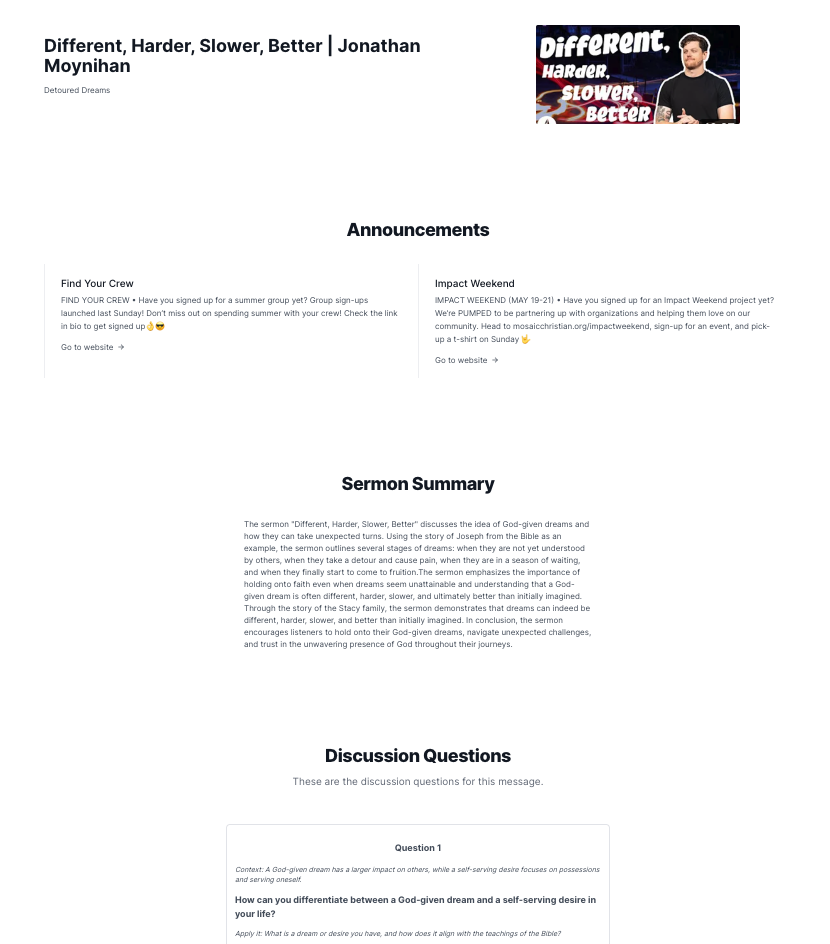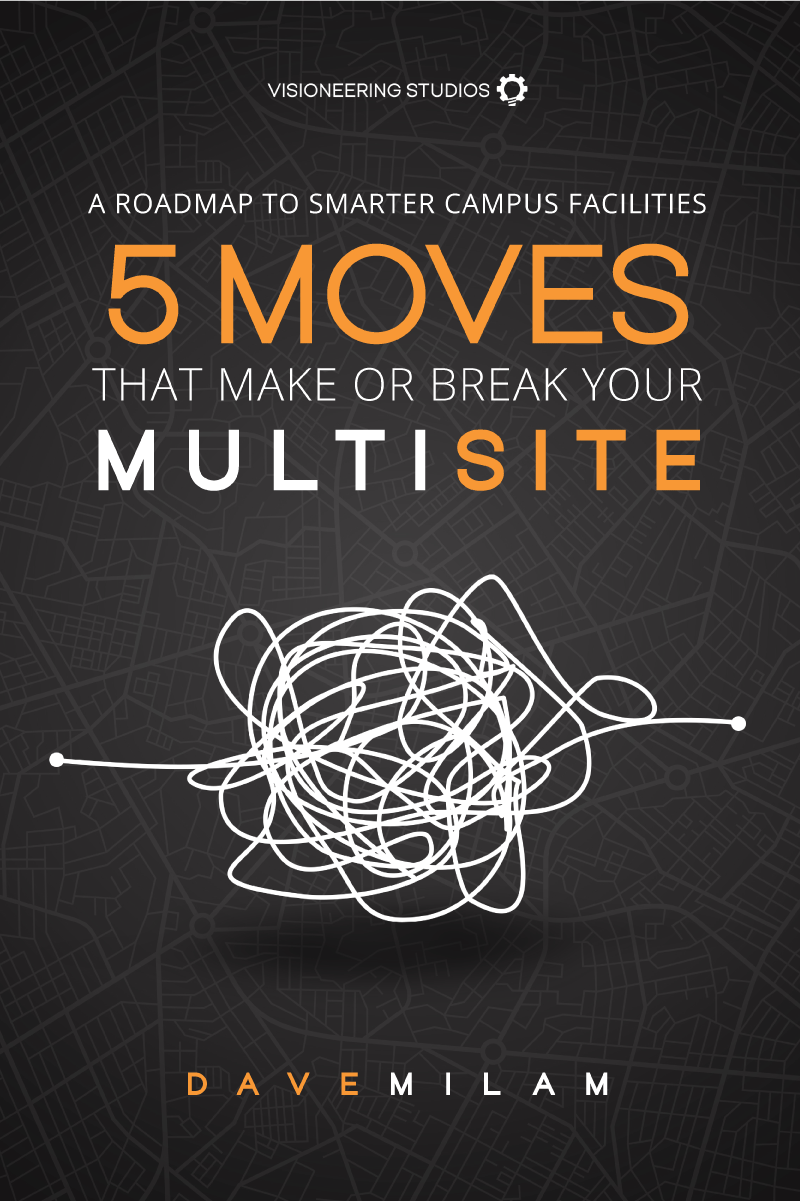
How Can AI Help My Church
An exciting ally has emerged in the digital age—Artificial Intelligence (AI). Can AI unlock new possibilities for the church? For instance, since many Millennials and Gen Z say they aren’t finding church relevant today, is there a way to make church more appealing with the help of AI?
Josh Burnett, founder of Flourish, a tech company based in Annapolis, Maryland, and a former church planter who started Revolution Church in 2009, has built tools with the goal of helping churches use AI to make disciples and to facilitate their good works.
Here’s what he has to say about Flourish’s AI offerings for the church world
How did the company get started?
Flourish is a nonprofit operating system that optimizes the way nonprofits and volunteers work together to make an impact.[At Revolution Church], basically, we established a goal for our church that for every member would be volunteering within the community with an organization they deeply cared about. And they would be using their skills and capabilities to the highest degree possible. We preferred they serve outside the church. Even if it meant we had to operate differently.
We spent years working on that goal, [starting by] simply talking about it and encouraging people to get involved. We made connections and encouraged people to go find an organization.We realized we couldn’t just promote [the nonprofit] organizations, but we had to help people get connected. And we realized that nonprofits don’t have a great way to use people in skilled roles, on the whole, around the country. That was the birth of the idea of Flourish.
Right now, Millennials and younger aren’t interested in the church. They don’t find it relevant. And the church is not engaging with them in a way that matters to them. Millennials want to work with organizations that are philanthropically involved.
What does Flourish offer to remedy that situation
We have a fully functional CRM that optimizes the way nonprofits work by automating things that executive directors are spending way too much time doing.Once we started matching people to organizations … because we had an emphasis on skilled volunteers, we really started making matches effectively. But the result was that the nonprofit didn’t use the [skilled volunteer] well.
For example, we sent the CIO of Under Armour to a nonprofit that had IT infrastructure issues, and we connected on the basis that he could help solve these issues. Instead of having the IT people meet with him, though, he was put to work by volunteers, moving heavy things from point A to B.He had been excited to use his professional skillset to make an impact. So he didn’t go back, because he felt like they didn’t care. I went to that organization afterward and said, “I gave you the plan here. He could solve your issues and probably write a check to make it happen.” We’d see stuff like that happening, so we realized we needed to create the technology to lift the burden off those organizations.
You recently launched an AI platform called Sermons.tech for churches. Tell us about how it came to be
So, we’ve been building AI into the Flourish platform for a while now. We have a super creative team, and we’re always having conversations about what else we can do around serving the church. So one day an engineer came to me and said, “We could take what we already built and use it to create an app to summarize podcasts.”
Because of my background in pastoral ministry, it dawned on me, we could have it listen to sermons, summarize them, and write small group discussion leader questions. And right there, we saw the birth of sermons.tech.
Explain sermons.tech and how it works
The initial product gives churches the ability to upload the sermon and turn it into the best discussion questions for small group leaders. And AI does 90% of that.
We’re building other tools alongside that, as well. For example, our Devotional tool [just] came out, where you can design your devotional based on any scripture you choose. Then you can push it out to the whole church or to specific groups of people. And there’s a Bible Study tool, too.
We’re working on sermon writing tools, as well, but they’re not like “write me a sermon about this.” [Instead, they provide a] framework of questions the pastor answers, and as they answer, the responses are indexed or analyzed. Then the tool can both 1.) show you where something is unclear and 2.) show you an illustration for that—it can offer [related] stories from history or business that pastors can integrate.
This tool is coming, plus a whole lot more that’s part of the platform.
For campus pastors, specifically, how can sermons.tech benefit them
A lot of multisite churches have live preaching at every campus. And so a cool piece about this tool is that we have an app (soon to be live) that allows your tech team to record the sermon by plugging a phone into the sound board. The app will automatically upload the recording and generate questions in real time. Or, someone just sitting in the audience—a small group leader or even a volunteer—can record the sermon [with their smartphone]. Even if the audio is horrible, it can transcribe it and generate questions for discussion. And this is done in minutes—before the service is over, easily.
We’ll also roll out a model for children’s ministry, as well, with some really cool features. Like the ability to generate a discussion guide for children’s volunteers for [teaching] afterward. [So, for the pastor, your] teaching is followed by small group discussions based on your actual content, as well as teaching for your volunteers for kids’ ministry.
In addition, we’ll roll out a parent discussion guide that’s a follow-along [and essentially], a summary of what your kids were taught. It prompts a conversation so you can talk about these topics with your kids.
Are there subscriptions for these services, and how much do they cost
There’s a pro plan with all the features, which right now is $100/month. [The price will increase] as we roll out new features. This [plan] will save between 4-10 hours each week of staff time. So they can really focus on people and engage with them.
Are you incorporating user insights into the software, apps and services
Yes, it’s one of the things we really love. Like with sermons.tech, for example, it’s fun for me to work with pastors and spiritual formation leaders … we’re always looking for input. Our customers stay engaged and we ask them what they want to see next. [Because in the end,] this product is built so the church can focus on people.





